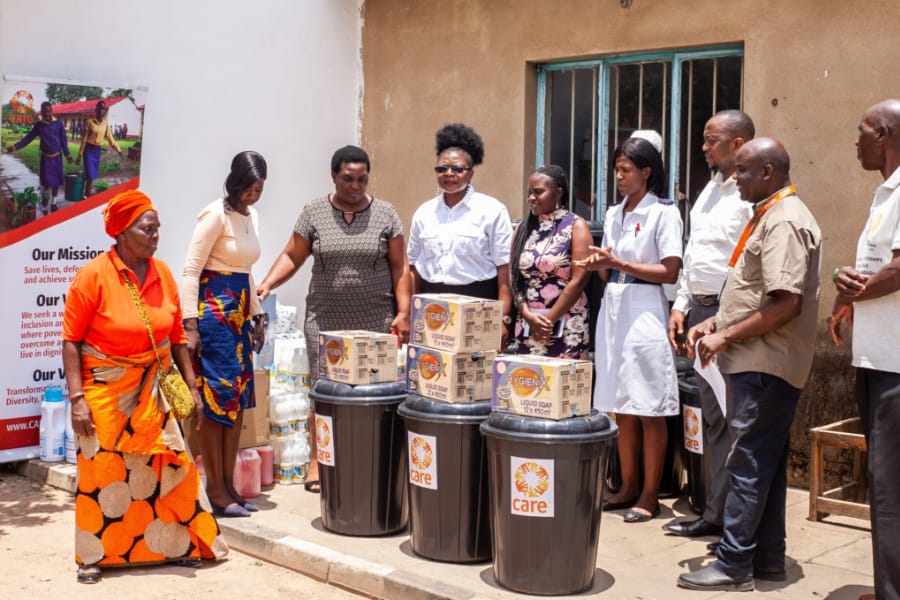7 Chitemwiko Close, Kabulonga, Lusaka, Zambia, 10101 // +260 977 790 075
Health
CARE improves the health of women and girls by strengthening the larger enabling environment and supporting the delivery of public health interventions that provide timely and effective services. CARE provides technical assistance to ensure transparent budgeting, planning, and monitoring of public health service provision, as well as supports interventions that address high maternal and infant mortality rates; prevent HIV among young women, who face the highest risk of infection; and increase knowledge, attitudes, and practice about the prevention and treatment of communicable and non-communicable diseases.
CARE has been at the fore of COVID-19 prevention and response efforts working with the Government to ensure the timely and equitable distribution of COVID-19 vaccines, disseminate Information, Education and Communication materials to health facilities, and sensitize communities.


Sexual Reproductive Health Rights
Access to Sexual and Reproductive Health services remains a significant challenge, particularly for pregnant and lactating women and girls. CARE is on the frontlines of raising awareness on Sexual and Reproductive Health Rights, challenging harmful norms and practices in communities through a whole of society approach, creating demand generation, and strengthening health systems across communities.
CARE’s SRHR programming works will all genders to overcome inequitable social and gender norms, practices, and policies, with a strong focus on engaging men and boys; expands spaces for dialogue and negotiation between communities and health service systems; uses innovative approaches to increase health worker effectiveness and their delivery of quality and accessible adolescent-friendly services; responds to the sexual and reproductive health needs of women and girls in emergencies and fragile contexts; and influences policy formation, budget allocation, and implementation at all levels.
Nutrition
CARE’s comprehensive nutrition programs adopt a multi-sectoral approach by combining sustainable agriculture, health, and WASH interventions to directly target knowledge, behaviors, and practices among communities. CARE recognizes Reproductive, Maternal, Ne wborn Child and Adolescent Health and Nutrition as one of the priority areas under Zambia’s 8th National Development Program, and CARE’s nutrition interventions will continue to complement national programs and strategies, such as The First 1000 Most Critical Days Program. CARE will continue to improve primary and community level maternal, neonatal, child health and nutrition services, and promote community-based Growth Monitoring and Promotion to improve overall minimum dietary diversity and minimum acceptable diet for the most vulnerable. More specifically, programming will reinforce malnutrition prevention through behaviour change communication, promote gender-sensitive community nutrition, and target pregnant and lactating women to improve Infant and Young Child feeding practices and dietary diversity in general.

